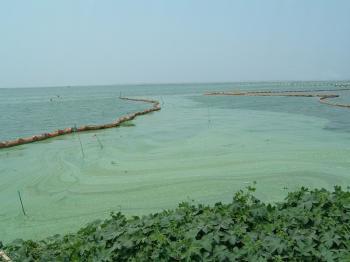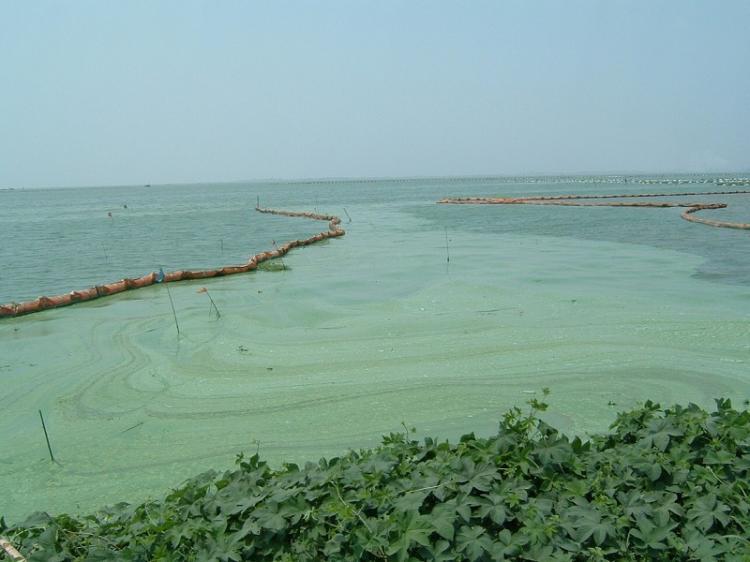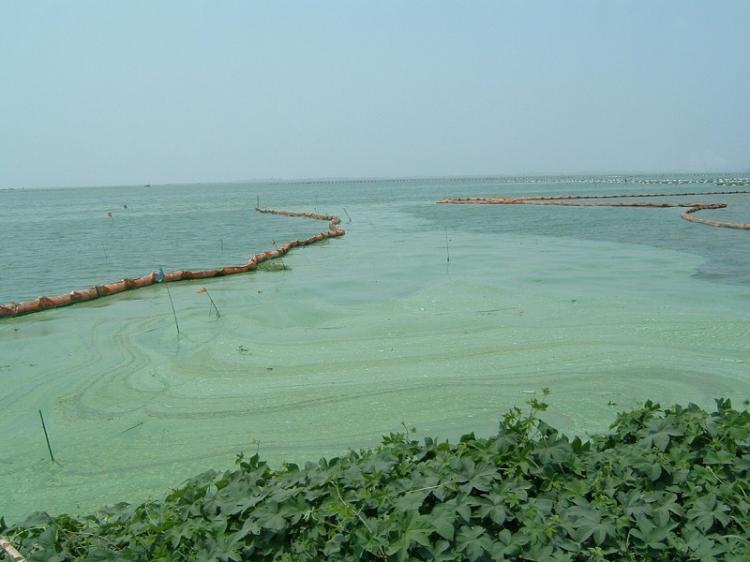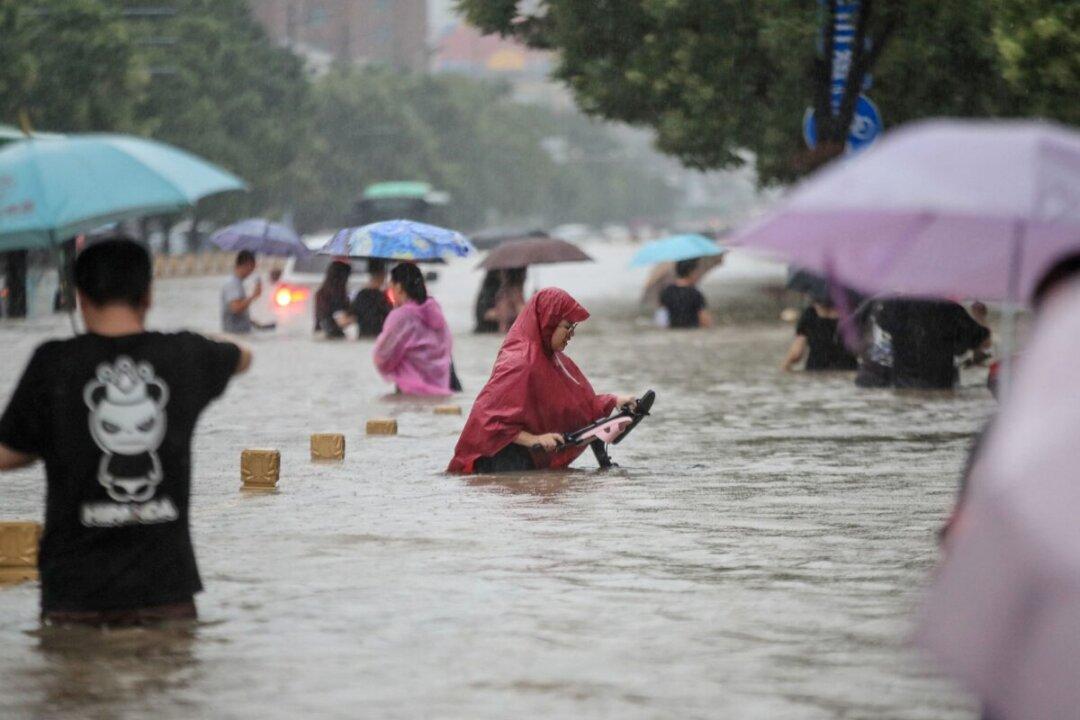Activist Emerges from Jail to Find Lake Still Polluted
A three-year prison sentence has not deterred Wu Lihong from voicing his concerns about the pollution of China’s third largest freshwater lake.

Blue-green algae contamination in Taihu Lake in August. By Wu Lihong/EpochTimes
|Updated:





